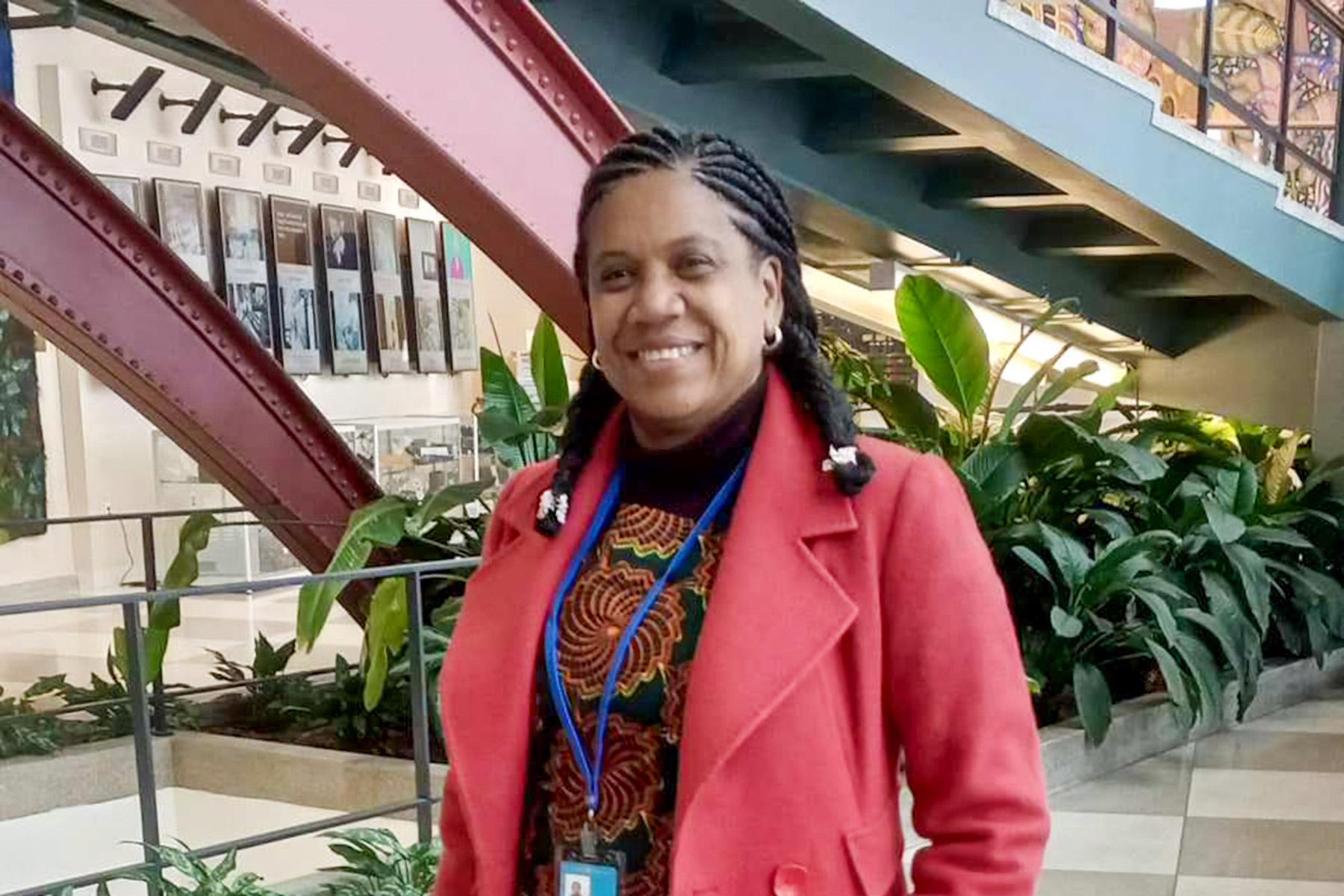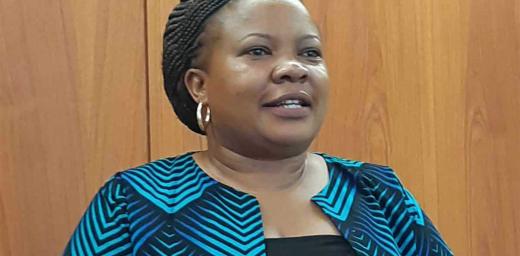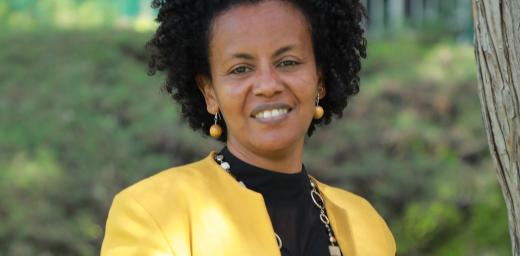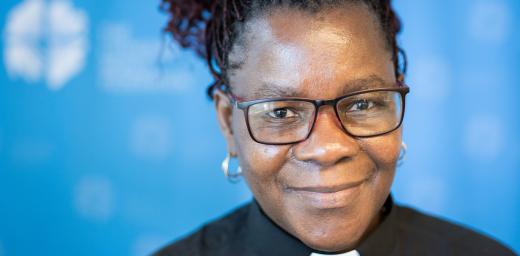Voices from the Communion: Rakotondramiadana Holiharifetra, gender justice coordinator for her church
(LWI) - Working to empower women for the benefit of individuals, families, churches and communities. That is the ambitious goal that Rakotondramiadana Holiharifetra has set herself since taking over as gender justice coordinator in the Malagasy Lutheran Church.
With over 4 million members, it is one of the fastest growing churches within The Lutheran World Federation (LWF), to which it has belonged since 1950. A distinctive feature of the church is its flourishing grassroots revival movement which has been active for over a century, gathering crowds of people of all ages for worship and spiritual healing.
Madagascar is also a very patriarchal society, Holiharifetra says, where women struggle to access equal opportunities, making them more vulnerable to poverty and violence. She travels around the country using Bible studies, alongside related Lutheran theology and revival movement perspectives, to provide fresh insights on shared decision-making and the equal dignity of women and men.
When did you first feel a vocation to leadership in the Malagasy Lutheran Church?
It is hard to explain, but from a very early age I liked going to Sunday School and felt a strong call from God to be involved in the church. After completing my secondary education, I went to the regional seminary in 1994 even though I didn’t think I would be able to go far in my theological studies. But my family and people in my church were very supportive and encouraged me to continue.
After completing a bachelor's degree in Madagascar, I was able to go to Norway to do a masters in systematic theology. It was hard being away from my family, but when I returned our former church president, Dr Rakoto Endor Modeste, asked me to coordinate the overseas mission work, based in the capital Antananarivo.
I didn’t know much about this ministry, but I worked very hard and travelled around the country to encourage local participation in this missionary project. With the support of our partners, the church sends missionaries to Bangladesh, Papua New Guinea, Thailand and other countries.
You have now been appointed as gender justice coordinator for the church, following in the footsteps of another theologian, Hélène Ralivao who was murdered for her work to empower women – do you fear for your safety too?
No, I just trust that I am doing God’s work. It is so important for our church, our communities, our families. We need to mobilize parents, couples, decision-making members of our church and society to treat boys and girls equally in terms of rights and responsibilities.
Similarly, we need to prepare our children to be more independent and create better relationships between young women and men, not depending on their families who can interfere with the life of a new couple.
What is the main focus of your work?
My work is to make people aware that all human beings are created equal in God’s image. I do this through workshops for women and men, through meetings and Bible studies. This sensitization work is difficult but as Christians, we must open people’s eyes to see the words of the Bible in a new light.
It is not about women replacing men, but about serving together, not competing but complementing each other, using all gifts and talents to serve God’s mission. Women must be free from systems, structures and traditions that hold them down and prevent their meaningful participation.
We also have a program on our church radio in Antananarivo and want to extend this into the different regions as well. It is very challenging as I have to record my talks late at night when it is quiet.
What other challenges do you face?
We need to move away from patriarchal perspectives and attitudes that are still predominant in society and even in the church, where some lay and ordained leaders do not like this gender justice work. In fact, women in our church have been able to study theology since the 1970s but we are still not able to be ordained.
We have the same qualifications, sit the same exams as men in the seminary, but after graduation, men are ordained and appointed to parishes, but most women become jobless. Only 10 percent of women theologians find work. Most of them must go back home and lose hope for the future.
Do you see hope that the situation for women is improving in your country?
For many women, life is very hard. They cannot access equal opportunities and there is less education for girls, less access to healthcare. Due to poverty, many girls, including high school students, are forced into prostitution. If married women want to study, their husbands may threaten to leave them, so they remain financially dependent.
As a church, we work with the LWF, the Evangelical Lutheran Church in America and the Norwegian Mission Society to give economic support to women, providing small grants for businesses, such as farming or sewing. We also provide vocational training in things like hairdressing or cooking and do capacity building to give women and girls self-confidence in their abilities.
You recently attended the UN’s Commission on the Status of Women in New York – how did that help you in your work?
Attending CSW68 gave me a renewed sense of responsibility, but I also realized that women in many countries are facing the same problems of poverty and violence that we see in Madagascar.
Since then, I have convened a dialogue for members of one of the synods in the south of the country. Most of them are men but I also took the opportunity to meet with the women’s association. I talked to both groups about gender equality, but I used different ways of raising awareness and I could see that their eyes were opened. I also want to use the 16 Days campaign to help young girls to know their rights which reduces their vulnerability to gender-based violence.
What does it mean for your church and your work to be a part of the global communion of churches?
It is so important for us because there is so much work to do. We need the support of a bigger family that the LWF provides. Through our partners, we offer some scholarships in different subjects, as well as supporting young mothers and providing day care for their children.
I have seen many women transform their lives through our support. One woman I know received funds to start a small pig farm and is able to sell the piglets at the local market. With the money she makes, she buys another pig and some bricks to build herself a house. Now, three years later, she is putting a roof on her own house and has hope for herself and her family.






